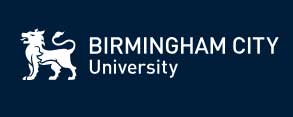About Medical Imaging Technology - Msc in Birmingham City University
The rapid evolution of medical imaging technology calls for expert practitioners to implement optimised imaging techniques and improve patient outcomes. This course aims to prepare students from a diverse background such as engineering, biomedical engineering, medical / surgical, or life sciences for a professional career in imaging-related fields in healthcare and research, by providing in-depth knowledge in medical imaging technology and preparing for using technical and engineering skills to improve healthcare delivery and medical practice.
Our MSc in Medical Imaging Technology combines elements from physics, mathematics, computer science, biomedical engineering, biology and clinical medicine to help you develop your knowledge, understanding and skills of engineering design, medical imaging technologies and clinical environment.
Through internationally recognised researchers, projects, guest lecturers and a stong collaboration with medical imaging technology SME’s / NHS Trust partners, you will develop the skills needed for a career in a medical imaging-related filed in clinical practice, research, or technical development. A range of optional modules will be offered so you can gain a greater knowledge in an area of your choosing.
This course comprises both a taught component and a research project, giving you the skills and knowledge required to pursue a career in applied medical imaging technology field within clinical medicine, medical research, and scientific research or development. The course offers you the opportunity to undertake an optional summer placement and work independently or as a team, to solve medical imaging technology problems, by interacting very closely with a range of professionals. Such professionals may vary from medical engineers to medical practitioners, from private medical device industries or local healthcare trusts (such as NHS), who are in partnership with the Faculty of Health, Education and Life Sciences.
Throughout the course you will complete your Professional Project – an independent piece of research on a topic within medical imaging technology that allows you to demonstrate your knowledge and skills.
We build employability into every aspect of our course. Through the course you will gain a range of transferable skills allowing you to take on a career in a number of sectors, alongside developing an in-depth understanding of your subject.
The course is currently in the process of seeking accreditation from the Institute of Physics and Engineering in Medicine (IPEM); such a professional recognition aims to ensure that graduates of accredited courses are equipped with the knowledge and skills for working in medical imaging technology workface in industry, healthcare or academic environments. Accreditation enables fast-track career progression as a professional medical imaging technician.
Academic qualification equivalents
- Bachelors degree - (Pass) in a related subject
English language requirements (one of the below):
- An IELTS score of 7.0
- A TOEFL score of at least 600 (paper-based test) / 100 (internet-based test) / 250 (computer-based test)
- PTE score 50-58
Birmingham City University Highlights
| Institution Type |
Public |
| Student Population |
25,800 |
| FAFSA Code |
G12215 |
| Application Cost |
20-26 GBP for UCAS |
| Accreditation |
ACCA, CIMA, RIBA, and, many others |
| Average Cost of Attendance |
18,086.5-27,575.5 GBP |
Birmingham City University Average Tuition fees and Other Expenses
This figure is an estimate of the basic living costs during the first nine months of studies, which covers most expenses including average tuition fees.
| Items |
Amount per annum in GBP |
| Tuition and fees |
5,700-13,200 |
| Accommodation |
5,483-7,013 |
| Food |
2,600 |
| Books and supplies |
450 |
| Utilities like gas, laundry, electricity, etc |
2,355 |
| Transportation |
390 |
| Leisure/social activities |
600-960 |
| Miscellaneous such as TV license, telephone cost, police registration, subscriptions, etc |
490.5 |
| Insurance |
15-117 |
| Total |
18,086.5-27,575.5 |
